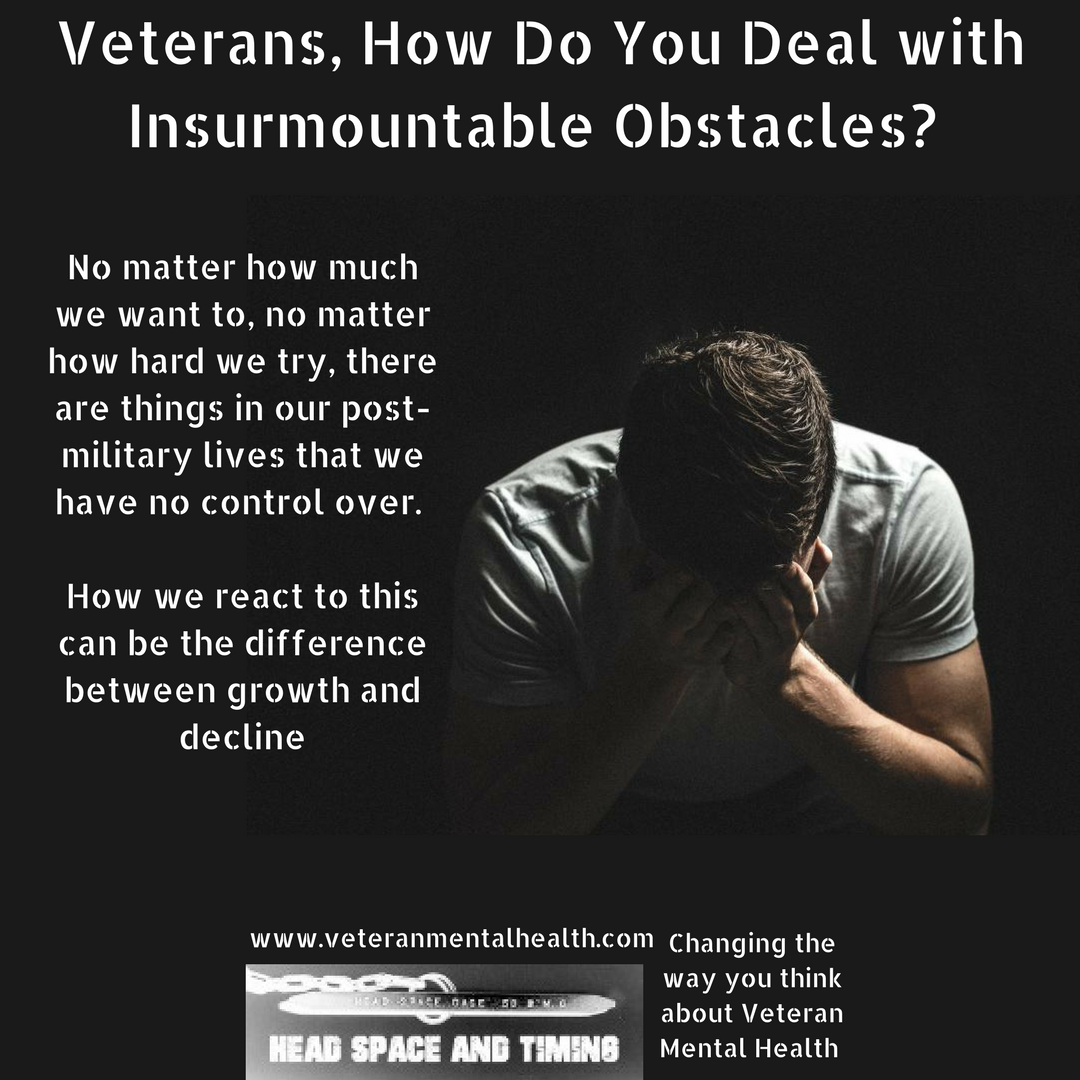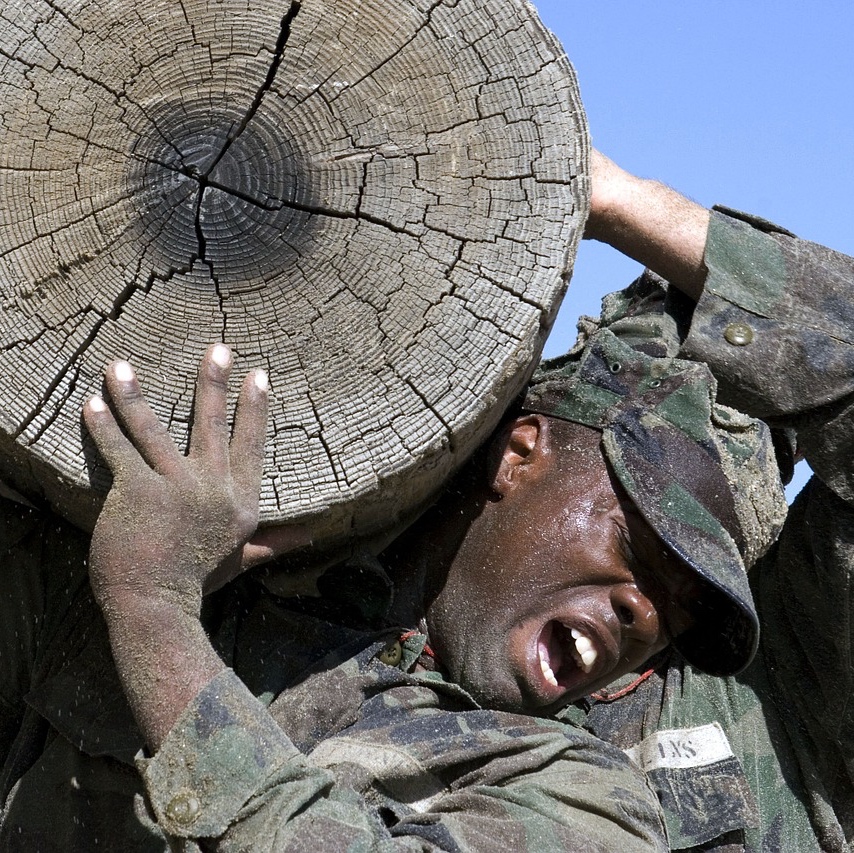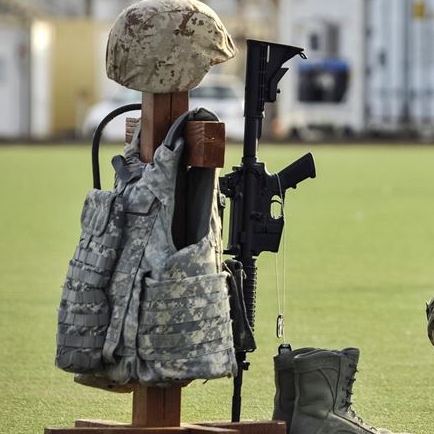 What do you do when you are faced with inevitable or insurmountable obstacles? Veterans are go-to, get-‘er-done kind of folks. I was having a conversation recently about the amount of time that it takes to get things done in the civilian world, and how we see it differently in the military. At the operational level, we move from planning to execution in a matter of months, days, or even minutes. The flexibility and the responsiveness of the military decision making process..whether it’s the more formal Military Decision Making Process or the grunt level Troop Leading Procedures…means that we observe something, decide how to react to it, and then react.
What do you do when you are faced with inevitable or insurmountable obstacles? Veterans are go-to, get-‘er-done kind of folks. I was having a conversation recently about the amount of time that it takes to get things done in the civilian world, and how we see it differently in the military. At the operational level, we move from planning to execution in a matter of months, days, or even minutes. The flexibility and the responsiveness of the military decision making process..whether it’s the more formal Military Decision Making Process or the grunt level Troop Leading Procedures…means that we observe something, decide how to react to it, and then react.
However, there were times in our military career, or now in our post-military lives, that no amount of effort on our part could change the outcome. When we set foot on a new duty station, we are going to inevitably leave that duty station at some point. This may be a welcome blessing…I’m looking at you, Fort Polk, Louisiana…but it may also be a dreaded occurrence. I’ve known people that spent nearly their entire career at Fort Bragg, and I sure did what I could to stay at Fort Carson for the final third of my career. There are things that we just can’t influence, no matter how much we want to.
There is a concept in Dialectical Behavior Therapy called Radical Acceptance. I’ve written before on the concept of being radical, and talked more in depth about Radical Acceptance there. Here is a recap of what it means to radically accept reality:
- Reality is as it is (the facts about the past and the present are the facts, even if you don’t like them).
- There are limitations on the future for everyone (but only realistic limitations need to be accepted).
- Everything has a cause (including events and situations that cause you pain and suffering).
- Life can be worth living even with painful events in it.
So how do we apply radical acceptance to an insurmountable problem? What do we do when we lose a loved one, despite our best efforts, or a brother or sister in arms takes their own life in spite of how we tried to save them? When the relationship ends, or the kids leave, or the job we love (or need) is taken from us? How, in other words, do we accept the fact that we can’t overcome something? That we, as we describe it to ourselves, fail? Here are some thoughts:
These Weren’t Your Obstacles to Overcome
Many of us have a challenge accepting defeat. It’s the no-quit, never-say-die attitude that generates success. But how often do we place that on something that is not ours to conquer? It may not have been my fight, and I need to learn to be okay with that. It may have been an impossible fight against unbeatable odds; that does not diminish my effort, and it does not require my despair at the loss. As I’ve often told my Soldiers when I was in the Army, “Sometimes you have to fight the fight that you know that you just can’t win, in order to be able to say that you fought.” Acknowledge the effort, appreciate the struggle, but understand…it may not have been your fight from the beginning. And then, knowing that it would still end in defeat, if you had it to do all over again…still you would fight.
None of Us are Superheroes
I am not going to stop the flow of Niagra Falls. I am not going to stand against a hurricane. The forces of nature that are arrayed against me…there is no way that I am going to make any amount of impact on those things. The list of things that I can’t control are numerous: the rotation of the earth, the impact of gravity, the actions of another person. These are simply beyond my ability. Is accepting the limitations of my ability defeat? Is recognizing that I’m not a superhero, but a fallible, mistake-prone human being, a failure? To me, it’s reality. Thinking that I have the ability to beat the game when the odds are stacked so much against me, or that I can achieve the impossible, can lead to frustration and despair.
What We Call Things Changes Things
Words have power. We all know that. We can talk about euphemisms, and trying to clean up something to make it seem like something more than it’s not, but a sanitation technician is still the garbage man. The Motor Transport Operator is still a truck driver. We can call it mental health, behavioral health, mental wellness, mental illness, but it’s all still talking about the same thing. The difference is, the meaning that we place on the words. In this podcast series I wrote about, Christopher Lochhead said, “when we were younger, we used to call people who lived on the streets winos and bums. Now, we call them homeless people. We treat homeless people differently than we treat winos and bums.”
If we call the end of the struggle against an impossible foe “defeat,” then we’re going to feel defeated. If we say “I failed” against something as inevitable as death, or a natural disaster, then we will feel like a failure. This isn’t a “circle of life” discussion like in the Lion King, but then again, it sort of is. If we see the end as the true end, and our inability to control inevitability as a failure, then we will have truly been defeated.
Focus on What You Can Control
So how do we deal with it? Sort of like the moment after the punch, there is a moment that exists after the fight ends. What we do next, how we think next, is going to determine our future success. We are now someone who has weathered a great storm, and we may be bruised and broken, but we are wiser. There is more that we understand. We know the sting of pain in a way that we did not know it before, and, brothers and sisters, that’s a valuable lesson. That’s what we can control…our reactions to the inevitable. As Kipling said in “If-“,
If you can force your heart and nerve and sinewTo serve your turn long after they are gone,And so hold on when there is nothing in youExcept the Will which says to them: ‘Hold on!’

The Head Space and Timing Blog is supported by the Colorado Veterans Health and Wellness Agency, a 501(c)3 Nonprofit in Colorado Springs, Colorado. The goal of the CVHWA is to provide military culturally competent mental health counseling to veterans and their spouses, regardless of characterization of discharge, time of service, or era of service. Our vision is to assist veterans to identify and remove barriers to their mental, physical, emotional, and behavioral wellness. For questions or inquiries, contact us!


